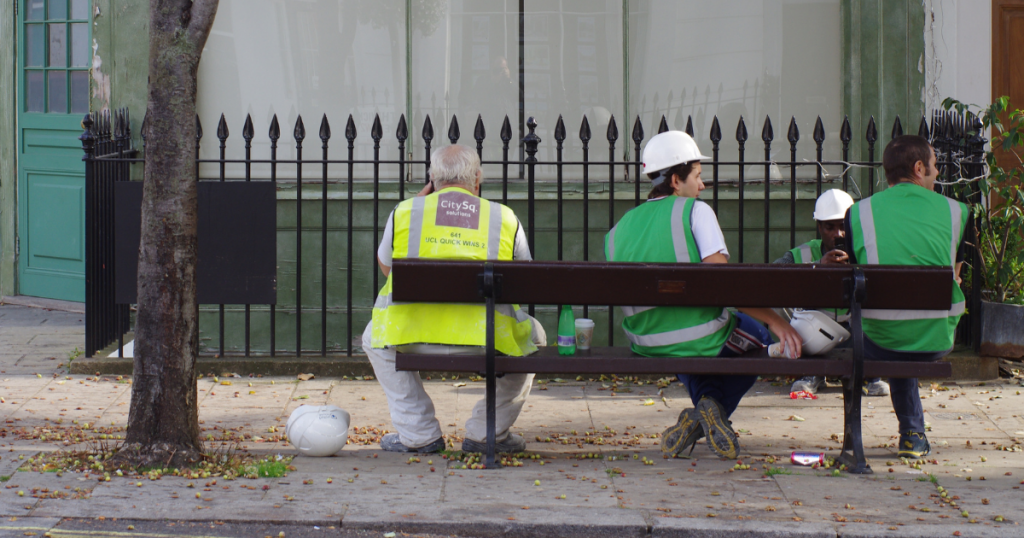
There is a long list of vital rules and regulations to ensure the physical safety of anyone working within the construction industry, however, when it comes to mental wellbeing, the sector still has a long way to go.
A recent study found that one in two tradespeople have experienced some kind of mental health issue and 91% experience work-related stress at least once a month.
Another survey carried out ahead of last year’s World Mental Health Day, found that only 6% of workers felt they had sufficient mental health support from management and HR and further data shared by the Office for National Statistics showed that in 2020 for every 100,000 construction workers, 30 died by suicide. This figure is considerably higher than in other industries, with analysis of this data finding that construction workers are 3.4 times more likely to take their own life than in other sectors.
All of these statistics are clear indicators that a new approach must urgently be taken to protect the mental health of those working in the industry, particularly as many are now dealing with the after-effects of the pandemic.
Why does the construction industry struggle to deal with mental health issues?
Gender diversity is another big problem the construction industry must solve, as currently, around 89% of the entire workforce is male. That disparity could go some way in explaining the alarming statistics relating to mental health.
Statistically, men are far less likely to disclose a mental health problem—when asked, 28% of men did not seek help for their last mental health issue in comparison to 19% of women, according to a YouGov survey carried out with the Mental Health Foundation. That same survey, the largest of its kind to be carried out, also found that more than a third of men either waited more than two years or chose to never tell friends or family about their struggles.
Organisations helping fight the stigma in construction
Mates in Mind is an organisation raising awareness and promoting mental health services within the workplace, with a particular focus on the construction industry.
Working alongside partnering businesses, they help to provide employers with the tools they need to care for the mental health of their teams.
IronmongeryDirect have also worked closely with mental health charity Mind to draw attention to the scale of the issue, donating funds and recently setting up an installation of 454 hard hats at Leeds College of Building, each representing a life lost to suicide in the construction industry the year prior.
Mental health first aid
Mental health first aid courses are becoming an increasingly common component of training in construction. The Construction Industry Training Board (CITB) has introduced a two-day course that aims to provide participants with the knowledge and skills to recognise mental health issues, provide first aid response, support the person’s recovery and signpost other services.
Where can I ask for help?
There are a range of UK organisations that can offer help and advice for anyone who might be struggling themselves, or know someone else struggling with their mental health—below is a list of mental health charities along with different ways of contacting each.
- Samaritans: You can contact Samaritans 24 hours a day, 365 days a year. You can call 116 123 (free from any phone), email jo@samaritans.org or visit branches in person.
- SANEline: You can call SANEline on 0300 304 7000 (4.30pm–10.30pm every day).
- National Suicide Prevention Helpline UK: Offers a supportive listening service to anyone with thoughts of suicide. Call the National Suicide Prevention Helpline UK on 0800 689 5652 (open 24/7).
- CALM: You can call the CALM on 0800 58 58 58 (5pm–midnight every day). Or if you prefer not to speak on the phone, you can try the CALM webchat service.
- The Mix: If you're under 25, you can call The Mix on 0808 808 4994 (3pm–midnight every day), request support by email using this form or use their crisis text messenger service.
- Papyrus HOPELINEUK: If you're under 35 and struggling with suicidal feelings, or concerned about a young person who might be struggling, you can call Papyrus HOPELINEUK on 0800 068 4141 (weekdays 10am-10pm, weekends 2pm-10pm and bank holidays 2pm–10pm), email pat@papyrus-uk.org or text 07786 209 697.
- Switchboard: If you identify as gay, lesbian, bisexual or transgender, you can call Switchboard on 0300 330 0630 (10am–10pm every day), email chris@switchboard.lgbt or use their webchat service. Phone operators all identify as LGBT+.
- Helplines Partnership: For more options, visit the Helplines Partnership website for a directory of UK helplines.